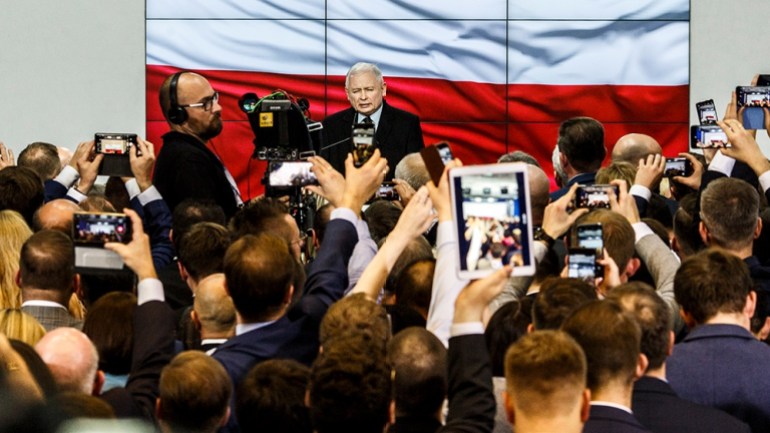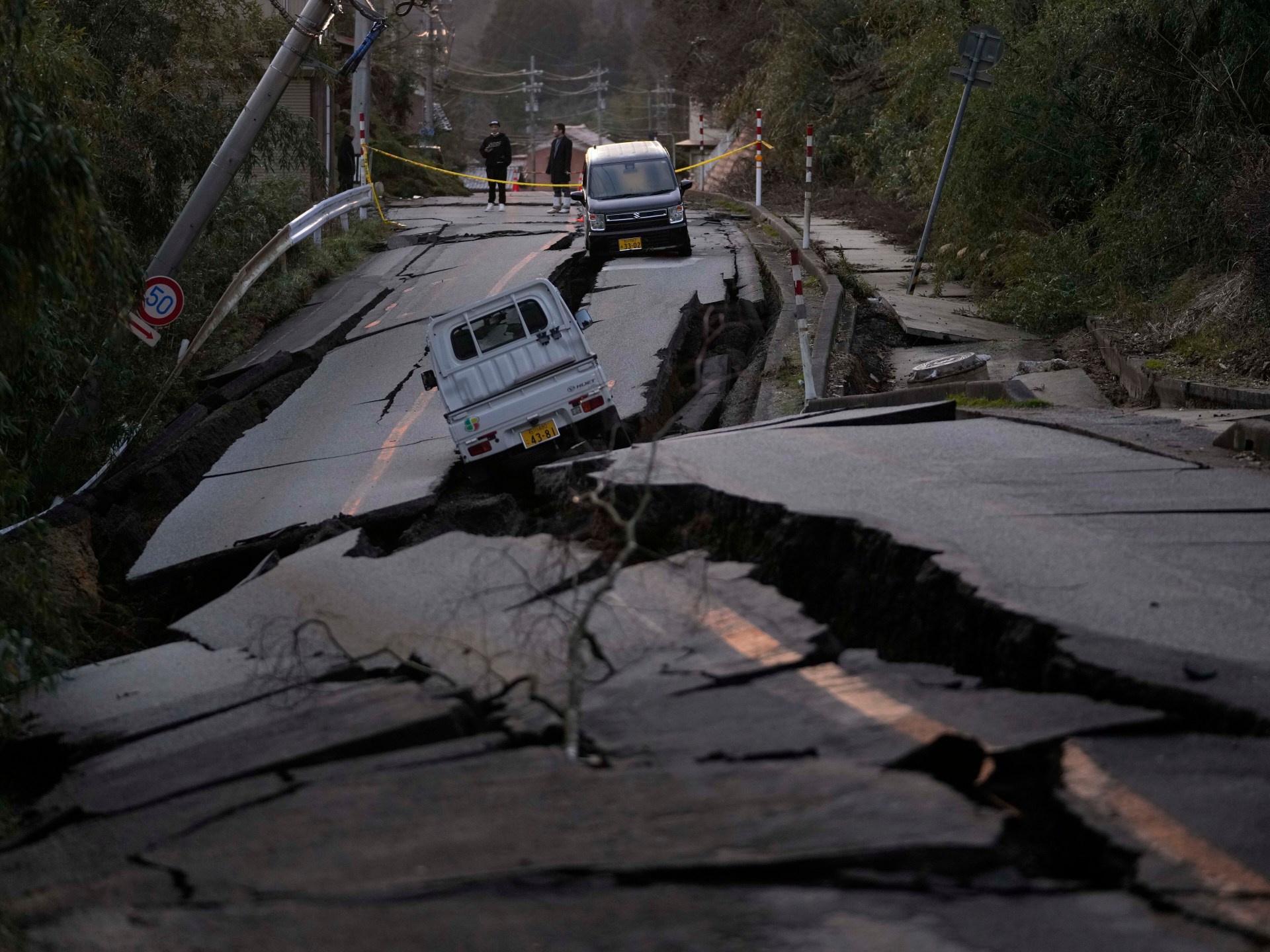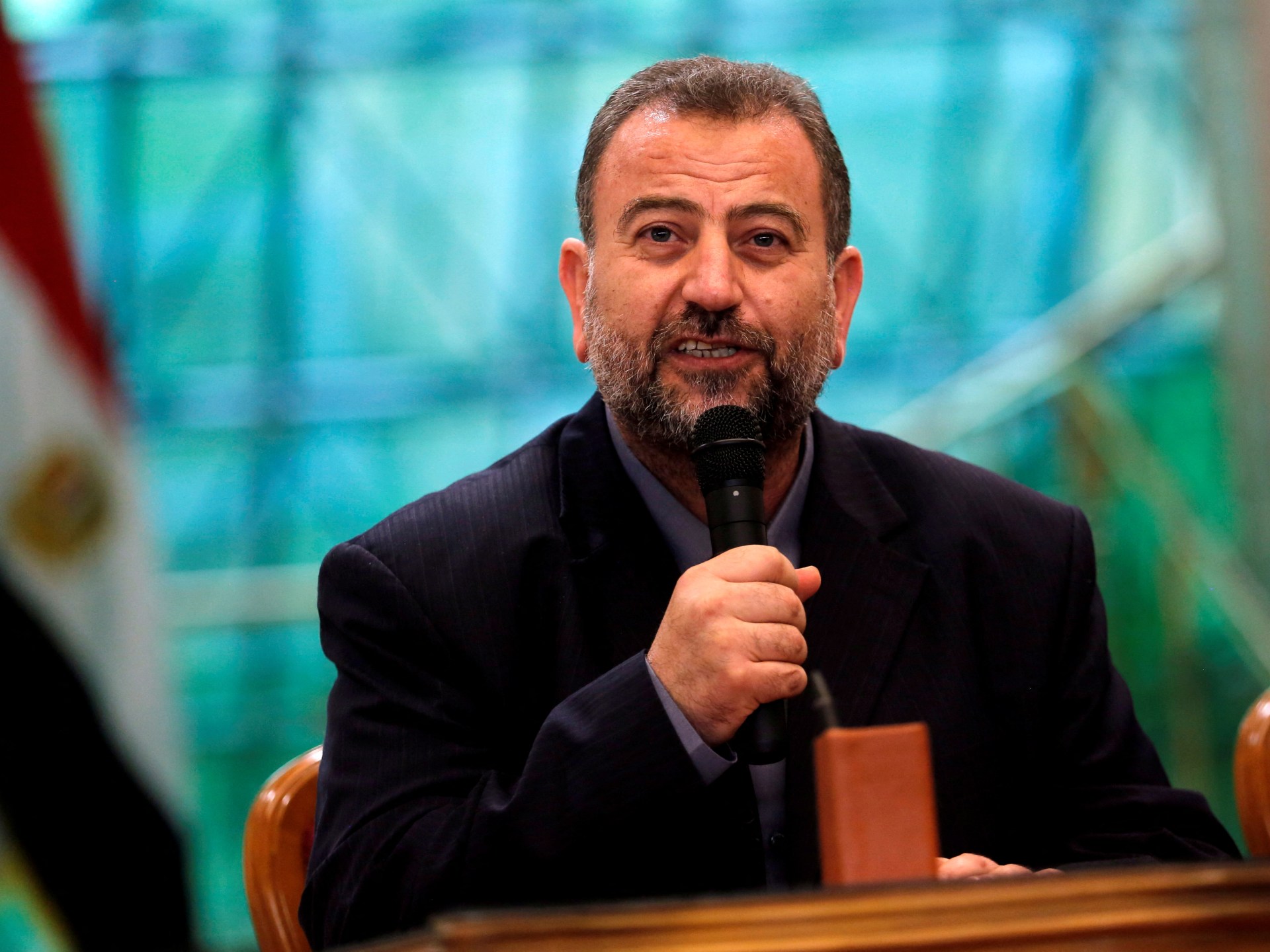Riding waves of fear and anger emanating from Russia’s war in Ukraine, the cost-of-living crisis and the coronavirus pandemic, nationalist, populist and far-right parties are eyeing rising support across Europe.
Polls have suggested that a backlash against immigration, LGBTQ rights, abortion and support for Ukraine is unfolding across the continent.
That has political forces branding themselves “conservative” and “patriotic” eyeing next year’s EU elections as a prime test.
But before that, upcoming votes in Poland and Slovakia could elevate fringe groups into government alongside nationalist populist partners, threatening to refresh strain on fragile democratic standards and erode EU unity on Russia’s full-scale invasion of Ukraine.
“Nationalism is on the march ahead of the Polish and Slovak elections, potentially ending unconditional support for Ukraine,” wrote analysts at Visegrad Insight.
Slovakia, Poland
Nowhere is the political shift more evident than in Slovakia, where the Smer party of former Prime Minister Robert Fico leads the polls in advance of a September 30 vote.
The unlikely return of the populist firebrand, accused of building a Mafia state during his 2012-2020 rule, has triggered warnings that Slovakia faces a crucial choice: to continue shoring up its fragile democracy or to plunge back into authoritarianism and corruption, risking isolation from Western partners.
“Alongside extremist partners, Fico wants to take Slovakia back to a past when oligarchs dominated the state,” claims Michal Simecka, leader of Progresivne Slovensko, Smer’s main rival.
Just to the north in Poland, Deputy Prime Minister Jaroslaw Kaczynski’s Law and Justice (PiS) hopes to win a third term at elections on October 15.
The party has been leading the polls with support of about 35 percent, but the centre-right Koalicja Obywatelska (KO), led by former Prime Minister and EU heavyweight Donald Tusk, is hot on its heels.
On those numbers, neither would be able to form a government alone, but PiS, accused of weakening democracy via “reform” of the judicial and electoral systems and wresting control of media, is seeking to tip the balance.
Alongside the election, a referendum will ask leading questions focused on populist issues, including immigration.
It is “a mechanism to mobilise PiS’s nationalist base”, according to lawyer and civil rights activist Kryzsztof Izdebski.
Should PiS win another term, analysts worry that would mean further democratic backsliding.
“The political playing field is already tilted, but the worry is that it would become nearly impossible to unseat PiS via democratic means,” said Jacek Kucharczyk, president of the Institute of Public Affairs.
 Should Jaroslaw Kaczynski’s PiS win another term, analysts worry that would mean further democratic backsliding [File: Carsten Koall/Getty Images]
Should Jaroslaw Kaczynski’s PiS win another term, analysts worry that would mean further democratic backsliding [File: Carsten Koall/Getty Images]
Critics of Fico and PiS have claimed the movements are fed by disinformation, but the failures of liberal democratic rivals are also a factor as Central Europe leans further towards nationalism.
Having deposed Fico in 2020, riding on popular anger about the slaying of journalist Jan Kuciak, a disparate coalition of centrist parties provided three years of chaos and squabbling as the pandemic, invasion of Ukraine, and cost-of-living crisis battered Slovakia.
“Fico’s support has been revived by the chaos under the outgoing democratic coalition,” said Milan Nic, a senior research fellow at the German Council on Foreign Relations.
“Those voting for Smer are seeking stability. They understand that the party allowed corruption to flourish, but at least they governed competently.”
In Poland, the democratically minded parties have struggled to cooperate to bring down PiS.
In this vote, that leaves KO tussling with the Third Way (TD) – another centre-right coalition – for democratic voters.
“For the opposition camp, the greatest risk stems from TD, whose potential failure to enter parliament would essentially eliminate chances of reaching an absolute majority,” said Andrius Tursa at risk consultancy Teneo Intelligence.
A step to the right
Conversely, both Smer and PiS are believed ready to work with the far right if needed.
In Poland, the far-right Konfederacja sits on about 10 percent in the polls. That has the party eyeing “a crucial role in the next parliament,” said Kucharczyk. “And in the worst-case scenario for Polish democracy, the position of kingmaker,” he adds.
The deep impact of Konfederacja on the election can be gauged by the change in the government’s approach to Ukraine.
Previously proudly parading as Kyiv’s staunchest supporter, having overseen the arrival of more than a million refugees, the government has adopted a different approach amid criticism of the “Ukrainisation of Poland”.
Warsaw has begun leading a group of eastern EU states, including Slovakia, that is blocking grain imports from Ukraine.
Slovakia’s Republika – a party that, despite neo-Nazi roots, has tapped into latent pro-Russian sentiment to gain the support of about 10 percent, has had a similar impact as it eyes a potential role in the next government.
Not ‘one bullet’
Fico’s political rhetoric, including a pledge that, if elected, he will not send “one bullet” to Ukraine while opposing further EU sanctions, has reflected the increasing influence of the far right.
“Fico knows that there are votes to be had on the margins and so has been borrowing from the far right,” said Nic from the German Council of Foreign Relations.
Should the two countries end the year with nationalist populists sharing power with the far right, it would have severe implications for democracy, rule of law, and Central Europe’s Western orientation, analysts worried.
Kaczynski has declared that victory would allow PiS to finish its much-criticised reform of the justice system, which has prompted the EU to freeze billions in funds for Poland over concerns about the rule of law.
“It’s widely assumed in Poland that if PiS gets a third term in office they will press for even deeper changes to the judicial and electoral systems and what remains of the independent media,” Kucharczyk noted.
Fico, meanwhile, plans a purge of the police and democratic institutions that has targeted the corrupt networks that flourished during his previous rule.
Some, including Nic questioned, whether the threat that Fico poses to democracy in Slovakia and Europe is being exaggerated.
But Simecka warned that a Smer victory would “threaten the emergence of another isolated regime within the EU, such as the one being built by Viktor Orban in Hungary”.
Hungary
Indeed, Hungarian Prime Minister Viktor Orban is watching keenly.
He has dreamed of building an illiberal bloc that could redirect the EU for years, and has appeared to be excited by the signs of growing support for nationalists and the far right across the EU.
“Next year, we have a chance to form a right-wing majority in the European Parliament. In all major countries, the right is going to win,” the prime minister’s political director, Balazs Orban, pronounced recently.
The government in Budapest has used a variety of techniques to encourage a rightward shift in neighbouring states, but Orban has seen that immigration has tended to be an especially hot button.
As the election approaches, Slovak authorities have complained that Hungary is encouraging migrants to cross the border in a bid to provoke support for Orban’s populist brethren. Fico has not been slow to pick up the baton.
Meanwhile, the pull of populist nationalism is such that democratic parties have struggled to resist.
Seeking to exploit a cash-for-visas scandal rocking the PiS government, Tusk has employed anti-migrant rhetoric.
Yet, Orban’s dream of a multinational illiberal force has never got far, and experts said that seems unlikely to change.
While a Fico-led government could see Slovakia join Budapest in complicating the EU’s support for Ukraine, the Hungarian leader’s loyalty to Russia’s President Vladimir Putin will keep a cap on cooperation.
While Republika is “likely on the pay list of Russia, China, or really whoever”, Nic asserted, Fico has already started to moderate as the vote approaches, and if he does return to government, he will not want to join Orban in antagonising Brussels.
“Fico won’t want to do anything to risk EU funds or invite scrutiny,” the analyst said.
Meanwhile, although Kaczynski and his government are in line with Orban on resisting EU involvement in rule of law issues, Poland’s de facto leader is also a strident Russia hawk, and relations between Budapest and Warsaw have cooled dramatically during the past 18 months.

 Movie
Movie 7 months ago
112
7 months ago
112 






![Presidents Day Weekend Car Sales [2021 Edition] Presidents Day Weekend Car Sales [2021 Edition]](https://www.findthebestcarprice.com/wp-content/uploads/Presidents-Day-Weekend-car-sales.jpg)



 English (United States)
English (United States)